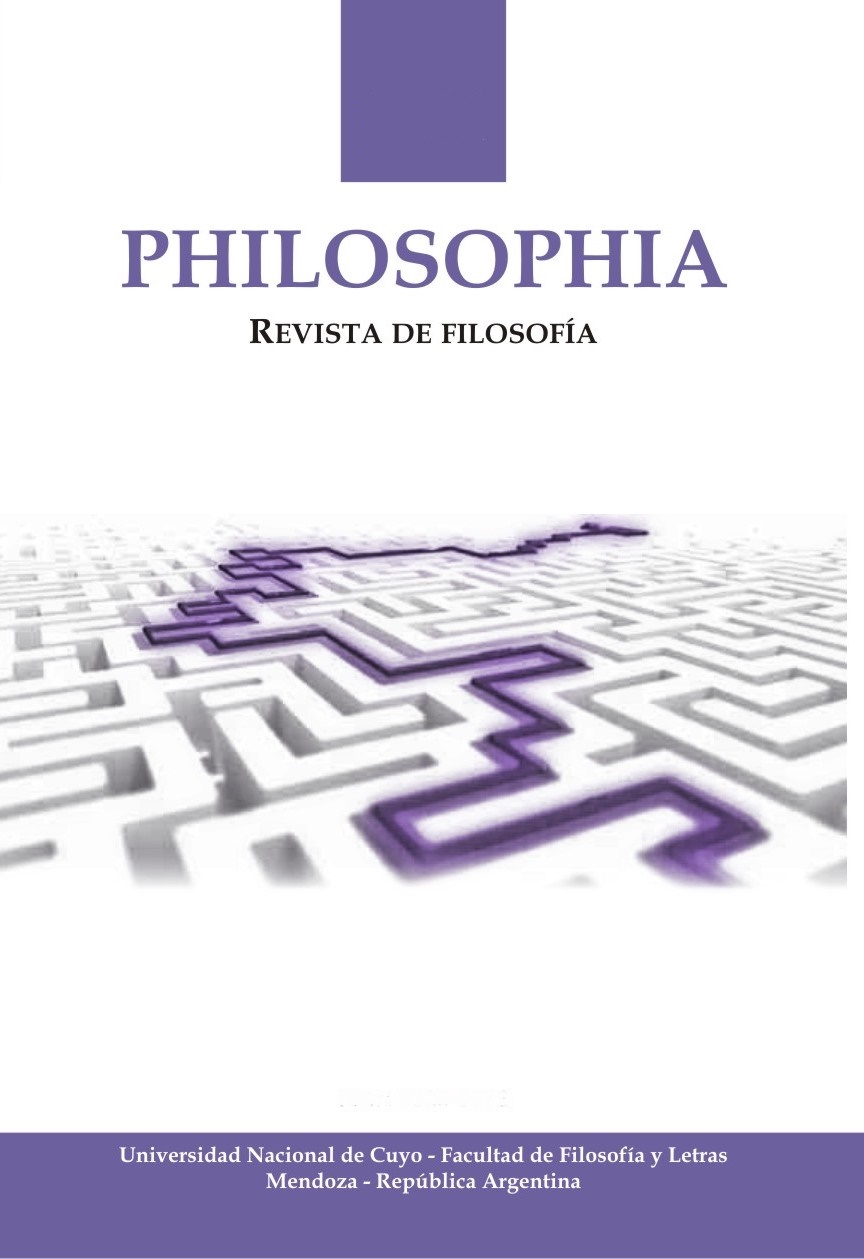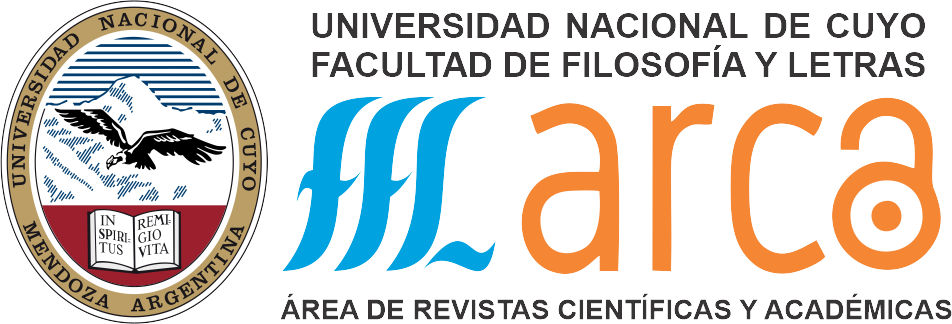Can we apply the science/technology distinction to the Social Sciences?
A brief analysis of the question
Parole chiave:
Social Engineering, Operations Research, Systemic Materialism, Demarcation ProblemAbstract
In this paper, I address the problem of applying the philosophical distinction between science and technology to the disciplines that deal with social phenomena. First, I will expose the demarcation problem regarding this distinction. Second, I will exhibit the arguments of those researchers who consider that it is possible to talk about technological disciplines in the fields that deal with the social world. I shall discuss then the "sociotechnology" (Mario Bunge) and the "social technology" (Olaf Helmer) approaches, apart from contemporary works of other scholars. Finally, I am going to defend why the science/technology distinction should be applied to the social disciplines.
Riferimenti bibliografici
Agassi, Joseph. "Experts within Democracy: The Turner Version". Philosophy of the Social Sciences 45, no. 3 (2015). https://doi.org/10.1177/0048393114550807 (Accessed July 18, 2019)
Aligica, P. D. y R. Herritt. "Epistemology, social technology, and expert judgement: Olaf Helmer’s contribution to futures research". Futures, 41, no. 5 (2009). https://papers.ssrn.com/sol3/papers.cfm?abstract_id=2149091 (Accessed March 24, 2017)
Alvargonzález, David. "La clasificación de las ciencias desde la filosofía del cierre categorial". Revista de humanidades, no. 37 (2019). http://revistas.uned.es/index.php/rdh/article/view/21202 (Accessed October 13, 2019)
Bunge, Mario. Chasing reality: Strife over Realism. Toronto: University of Toronto Press, 2006.
Bunge, Mario. Las Ciencias Sociales en Discusión: una perspectiva filosófica. Buenos Aires: Editorial Sudamericana, 1999. [Available in English, Social Science under Debate: A Philosophical Perspective. Toronto: University of Toronto Press, 1998]
Bunge, Mario. Scientific materialism. Dordrecht: Reidel, 1981.
Bunge, Mario. Treatise on basic philosophy. Volume 4: Ontology II: A world of systems. Dordrecht: Reidel, 1979.
Bunge, Mario. Treatise on Basic Philosophy. Volume 6: Epistemology and Methodology II: Understanding the World. Dordrecht: Reidel, 1983.
Bunge, Mario. Treatise on basic philosophy. Volume 7: Epistemology and Methodology III: Philosophy of Science and Technology. Part II. Life Science, Social Science and Technology. Dordrecht: Reidel, 1985.
da Cunha, Ivan Ferreira. "Constructing dystopian experience: A Neurath-Cartwrightian approach to the philosophy of social technology". Studies in History and Philosophy of Science Part A 72 (2018). https://doi.org/10.1016/j.shpsa.2018.05.012 (Accessed July 22, 2019)
Derksen, Maarten and Anne Beaulieu. "Social Technology". In The SAGE Handbook of the Philosophy of Social Sciences, edited by Ian C. Jarvie and Jesus Zamora-Bonilla, 703-720. London: SAGE Publications, 2011.
Derksen, Maarten, Signe Vikkelsø, and Anne Beaulieu. "Social Technologies: Cross-Disciplinary Reflections on Technologies in and from the Social Sciences". Theory & Psychology 22, no. 2 (2012). https://doi.org/10.1177/0959354311427593 (Accessed July 18, 2019)
Duflo, Esther. "Richard T. Ely Lecture: The Economist as Plumber". American Economic Review 107, no. 5 (2017). 10.1257/aer.p20171153 (Accessed October 25, 2019)
Echeverría, Javier. Innovation and Values. A European Perspective. Center for Basque Studies: University of Nevada, Reno, 2014.
Ellul, Jacques and Robert K. Merton. The technological society. New York: Vintage Books, 1964.
Fasce, Angelo. "What do we mean when we speak of pseudoscience? The development of a demarcation criterion based on the analysis of twenty-one previous attempts". Disputatio. Philosophical Research Bulletin 6, no. 7 (2017), https://disputatio.eu/vols/vol-6-no-7/fasce-pseudoscience/ (Accessed April 4, 2019)
Helmer, Olaf and Nicholas Rescher. "On the Epistemology of the Inexact Sciences". Management Science 6, no. 1 (1959). https://www.rand.org/pubs/reports/R353.html (Accessed March 6, 2017)
Helmer, Olaf, Bernice Brown and Theodore Gordon. Social Technology. New York: Basic Books, 1966.
López Cerezo, José A. "Democracia en la frontera", Revista CTS 3, no. 8 (2007). http://www.revistacts.net/volumen-3-numero-8/60-dossier/138-democracia-en-la-frontera (Accessed February 18, 2019)
López Cerezo, José A. "Gobernabilidad en la sociedad del conocimiento", EIDOS no. 6 (2007). http://rcientificas.uninorte.edu.co/index.php/eidos/article/view/1492/962 (Accessed January 18, 2019)
Mahner, Martin. "Demarcating Science from Non-Science". In Handbook of the Philosophy of Science: General Philosophy of Science – Focal Issues, edited by Theo Kuipers, 515-575. Amsterdam: Elsevier, 2007.
Mahner, Martin. "Science and Pseudoscience. How to Demarcate after the (Alleged) Demise of the Demarcation Problem". In Philosophy of Pseudoscience: Reconsidering the Demarcation Problem, edited by Massimo Pigliucci and Maarten Boudry, 29-35. Chicago: University of Chicago Press, 2013.
McMullin, Ernan. "Values in science". In PSA: Proceedings of the Biennial Meeting of the Philosophy of Science Association. Volume Two: Symposia and Invited Papers, 3-28. Chicago: The University of Chicago Press, 1982.
Mitcham, Carl. Thinking through technology: the path between engineering and philosophy. Chicago: The University of Chicago Press, 1994.
Niiniluoto, Ilkka. "The aim and structure of applied research". Erkenntnis 38, no. 1 (1993): 1-21.
Ortega y Gasset, José. Meditaciones de la técnica y otros ensayos sobre ciencia y filosofía. Madrid: Alianza, 2000.
Pickel, Andreas. "Between Social Science and Social Technology: Toward a Philosophical Foundation for Post-Communist Transformation Studies". Philosophy of the Social Sciences 31, no. 4 (2001), https://doi.org/10.1177/004839310103100401. (Accessed July 10, 2019)
Pineda-Henao, Elkin Fabriany and Carlos Tello-Castrillón. "¿Ciencia, Técnica y Arte?: Análisis Crítico Sobre Algunas Posturas Del Problema Del Estatus Epistemológico de La Administración." Revista LOGOS CIENCIA & TECNOLOGÍA 10, no. 4 (2018). http://revistalogos.policia.edu.co/index.php/rlct/article/view/605 (Accessed March 23, 2019)
Popper, Karl R. The poverty of historicism. New York: Harper & Row, 1961.
Popper, Karl R., Alan Ryan and E. H. Gombrich. The open society and its enemies. Princeton: Princeton University Press, 2013.
Putnam, Hilary. The Collapse of the Fact/Value Dichotomy and other essays. Cambridge, Massachusetts: Harvard University Press, 2002.
Quintanilla, Miguel A. Tecnología: un enfoque filosófico y otros ensayos de filosofía de la tecnología. México D.F.: Fondo de Cultura Económica, 2005.
Romero, Gustavo Esteban. Scientific Philosophy. Springer International Publishing, 2018.
Seni, Dan A. "The Sociotechnology of Sociotechnical Systems: Elements of a Theory of Plans". In Studies on Mario Bunge’s Treatise, edited by Paul Weingartner and Georg J. W. Dorn, 431-452. Amsterdam: Rodopi, 1990.
Simon, Herbert Alexander. The Sciences of the Artificial. Cambridge, Massachusetts: MIT Press, 1996.
Sovacool, Benjamin K. "Broken by Design: The Corporation as a Failed Technology". Science, Technology and Society 15, no. 1 (2010). https://doi.org/10.1177/097172180901500101 (Accessed July 13, 2019)
Stelzer, Harald. "Principles and Policies: What Can We Learn from Popper’s ‘Piecemeal Social Engineering’ for Ideal and Nonideal Theory?". Philosophy of the Social Sciences 46, no. 4 (2016). https://doi.org/10.1177/0048393116639226 (Accessed July 13, 2019)
TamošiÅ«naitÄ—, RÅ«ta. "Integrated Social Technologies For Citizen Participation In Modern Public Governance Decision Making" In The 5th European Interdisciplinary Forum 2017 (EIF 2017). Drivers for Progress in the Global Society, edited by Agota GiedrÄ— RaišienÄ— and Yuriy Bilan, 27-34. Vilnius: Editografica, 2018.
Pubblicato
Come citare
Fascicolo
Sezione
Licenza
Se permite la reproducción de los artículos siempre y cuando se cite la fuente. Esta obra está bajo una Licencia Atribución-NoComercial-CompartirIgual 3.0 (CC BY-NC-SA 3.0).
Usted es libre de: Compartir "” copiar y redistribuir el material en cualquier medio o formato; adaptar "” remezclar, transformar y construir a partir del material.
La licenciante no puede revocar estas libertades en tanto usted siga los términos de la licencia
Bajo los siguientes términos:
Atribución "” Usted debe dar crédito de manera adecuada, brindar un enlace a la licencia, e indicar si se han realizado cambios. Puede hacerlo en cualquier forma razonable, pero no de forma tal que sugiera que usted o su uso tienen el apoyo de la licenciante.
NoComercial "” Usted no puede hacer uso del material con propósitos comerciales.
CompartirIgual "” Si remezcla, transforma o crea a partir del material, debe distribuir su contribución bajo la lamisma licencia del original.
No hay restricciones adicionales "” No puede aplicar términos legales ni medidas tecnológicas que restrinjan legalmente a otras a hacer cualquier uso permitido por la licencia.
Para mayor información, visite https://creativecommons.org/licenses/by-nc-sa/3.0/deed.es















